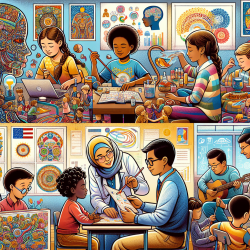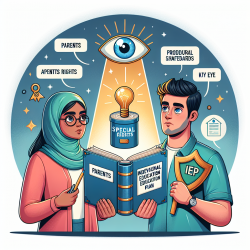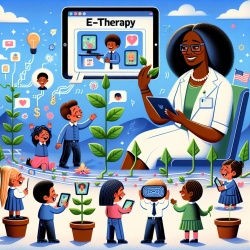Introduction
Understanding the diverse forms of intelligence in children is crucial for educators and therapists aiming to optimize learning outcomes. A recent study titled A study on different forms of intelligence in Indian school-going children provides valuable insights into how multiple intelligences manifest in children and their correlation with traditional IQ scores. This blog explores how practitioners can leverage these findings to enhance educational strategies.
Understanding Multiple Intelligences
The study conducted by Singh et al. (2017) highlights the existence of multiple intelligences beyond the traditional IQ framework. The research identifies seven forms of intelligence: linguistic, logical/mathematical, musical, spatial, bodily-kinesthetic, intrapersonal, and interpersonal. The study found that while IQ scores correlate positively with logical/mathematical, musical, and spatial intelligences, other forms like linguistic and bodily-kinesthetic also play significant roles in a child's cognitive development.
Implications for Practitioners
For speech-language pathologists and educators, incorporating the concept of multiple intelligences into practice can lead to more personalized and effective teaching strategies. Here are some practical applications:
- Linguistic Intelligence: Encourage activities that involve reading, writing, and storytelling to engage children with strong linguistic skills.
- Logical/Mathematical Intelligence: Use problem-solving exercises and mathematical games to stimulate logical reasoning.
- Musical Intelligence: Integrate music and rhythm into learning sessions to enhance memory and engagement.
- Spatial Intelligence: Utilize visual aids, models, and spatial reasoning tasks to support learning for spatially intelligent children.
- Bodily-Kinesthetic Intelligence: Incorporate physical activities, role-playing, and hands-on learning to cater to kinesthetic learners.
- Intrapersonal Intelligence: Foster self-reflection and personal goal-setting to help children understand and manage their emotions.
- Interpersonal Intelligence: Promote group activities and collaborative projects to enhance social skills and teamwork.
Encouraging Further Research
While the study provides a comprehensive overview of multiple intelligences, it also highlights the need for further research, particularly in diverse cultural contexts. Practitioners are encouraged to conduct their own studies to explore how these intelligences manifest in different populations and how they can be effectively nurtured.
Conclusion
By recognizing and fostering multiple intelligences, educators and therapists can create more inclusive and effective learning environments. This approach not only supports children with diverse cognitive profiles but also maximizes their potential for academic and personal success.
To read the original research paper, please follow this link: A study on different forms of intelligence in Indian school-going children.










